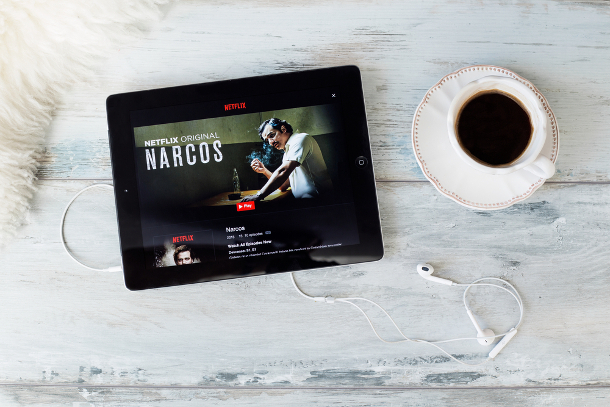Canadian Heritage Minister Mélanie Joly's digital CanCon consultation is likely to spark calls from the cultural establishment for new levies and taxes to fund the creation of domestic content. The Internet will be the primary target with demands for a Netflix tax, along with legislative reforms that would open the door to additional fees on internet providers.
Yet an unimaginative approach that seeks to regulate the internet imposes costs that would make internet access less affordable and create a regulatory environment that runs counter to fundamental principles of freedom of speech and access to information. Joly should reject efforts to recycle stale policies and instead embrace the opportunity to shake up Canadian cultural policy.
The starting point should be a shift in funding for Canadian content creation. The current model, which relies heavily on mandatory contributions from the Canadian broadcasting community, is in decline as revenues from the sector slowly shrink (the Canadian Radio-television and Telecommunications Commission recently reported that conventional television revenues declined by 2.4 per cent in 2015).
With the broadcasting sector struggling to compete against unregulated internet services, Joly should drop mandatory contributions altogether. In their place, support for the content industries could come from four sources: federal granting programs funded through general tax revenues, benefits packages from industry mergers, allocations from spectrum licensing, and targeted tax credits that benefit Canadian producers. The change would provide more stable funding for production and marketing, while leaving broadcasters more competitive.
Online services should remain unregulated and free from mandatory contributions, but should be subject to general sales taxes. Levying GST or HST on Canadian online video services such as Shomi or CraveTV while leaving Netflix tax-free creates a tax revenue shortfall and places domestic services at a disadvantage compared to their foreign counterparts.
Rethink CRTC's powers
Canadian broadcasting and telecommunications law must also keep pace with the changing digital environment. Rules that grant the CRTC the power to determine which channels may operate in Canada should be repealed. Instead, the Commission should concentrate on consumer protection and marketplace competition.
The consumer protection issues include regulations maintaining maximum consumer choice through pick-and-pay models, truth in advertising on communications services, and guaranteed internet access for all Canadians.
Competition encompasses an even broader range of issues, including enforceable net neutrality rules to ensure that creators and consumers benefit from neutral network service without unfair preferences, safeguards against vertically integrated media giants unfairly favouring their own content, and the possibility of structural separation for companies that own significant content and carriage businesses.
Ad-free digital CBC?
As for Canada's public broadcaster, one of the most contentious issues in recent years has been the CBC's emphasis on digital delivery of news content. Reconciling the need for the CBC to remain relevant by embracing digital delivery with the financial impact on private sector news services could be addressed by requiring the public broadcaster to adopt an ad-free approach to its online news presence. That would ensure that it reaches digital audiences but does not directly compete with the private sector for advertising dollars. The private news services could also benefit from a change to allow tax deductions for advertising on Canadian websites.
While these changes would dramatically shift the legal and regulatory environment for Canadian culture, Joly's initiative needs an even bigger goal to capture the public's imagination. That could include requiring the CBC to open its content for public reuse (the government is opening its national parks, why not its national content?) or embarking on a comprehensive digitization initiative that provides the foundation for a national digital library.
Joly has encouraged Canadians to think big about Canadian cultural policy. It now falls to the government to reject the regulatory models of the past by embracing a future-focused strategy that emphasizes competition, consumer access, and the export and promotion of Canadian content for a global audience. ![]()
Read more: Politics
















Tyee Commenting Guidelines
Comments that violate guidelines risk being deleted, and violations may result in a temporary or permanent user ban. Maintain the spirit of good conversation to stay in the discussion.
*Please note The Tyee is not a forum for spreading misinformation about COVID-19, denying its existence or minimizing its risk to public health.
Do:
Do not: